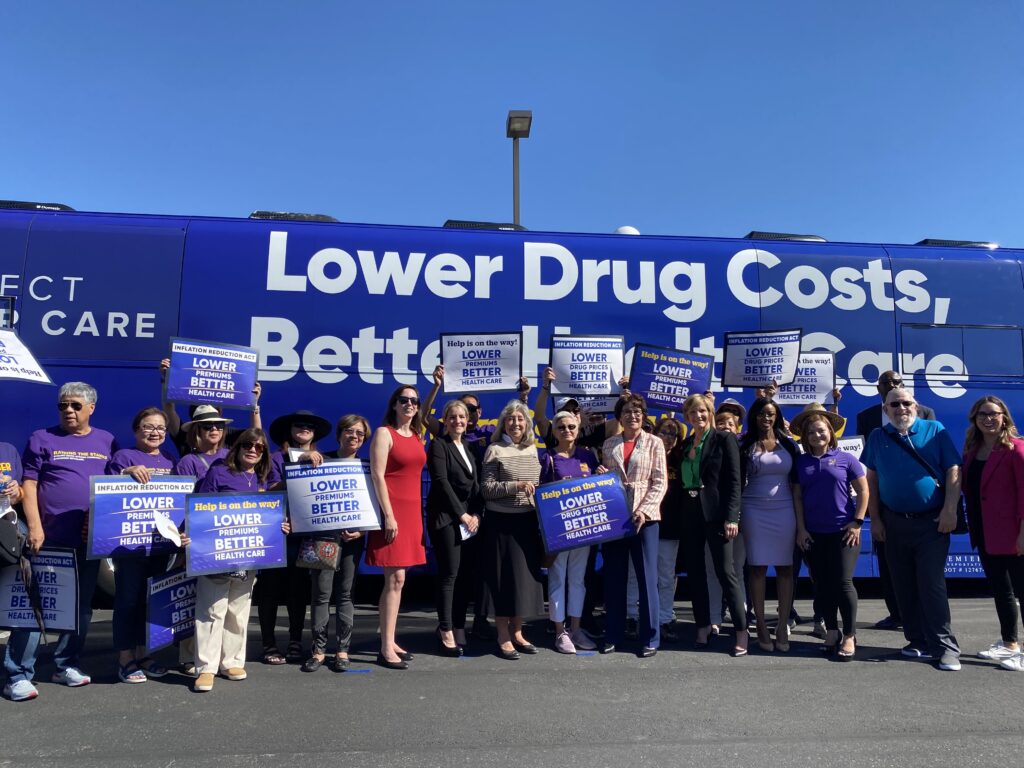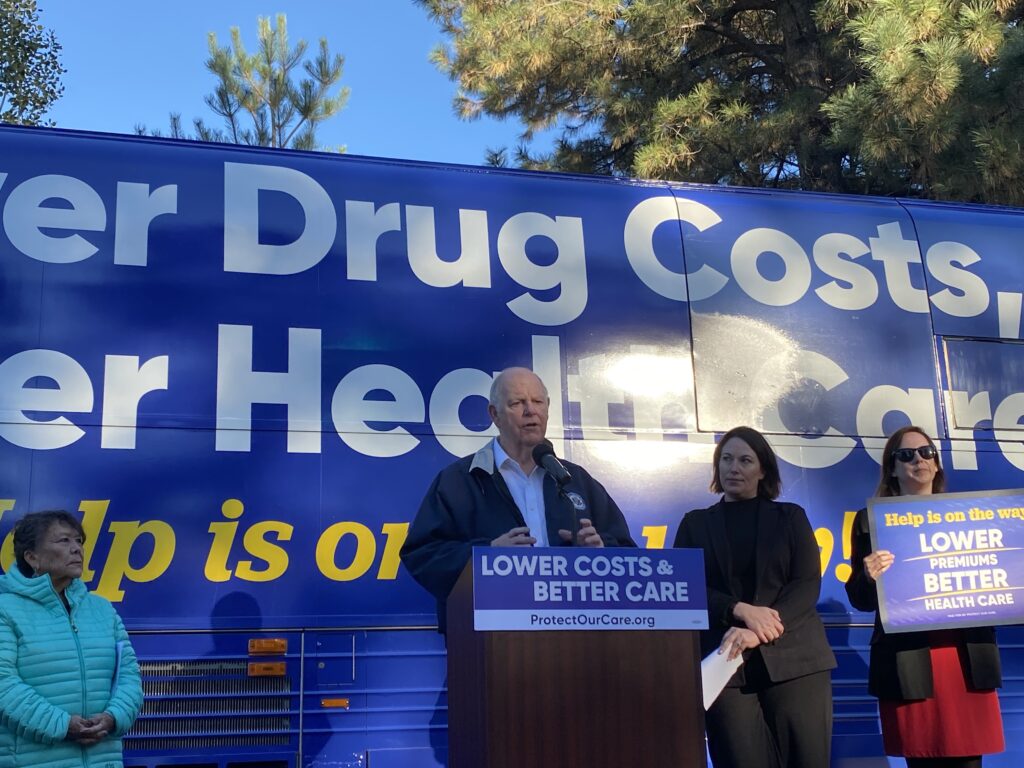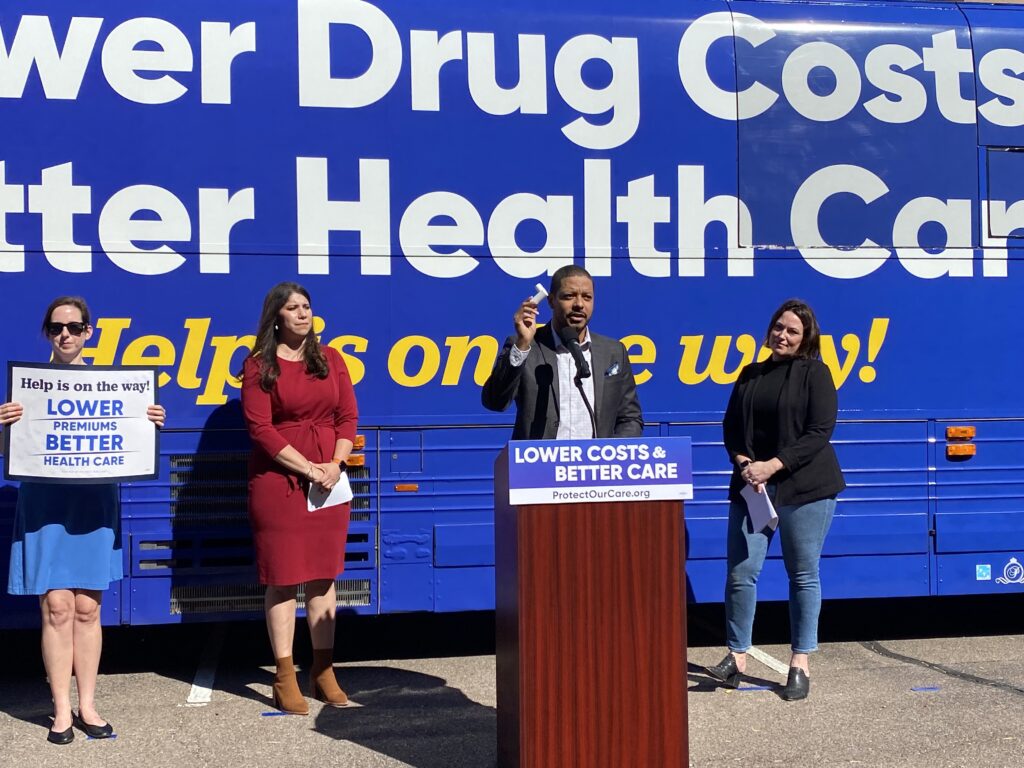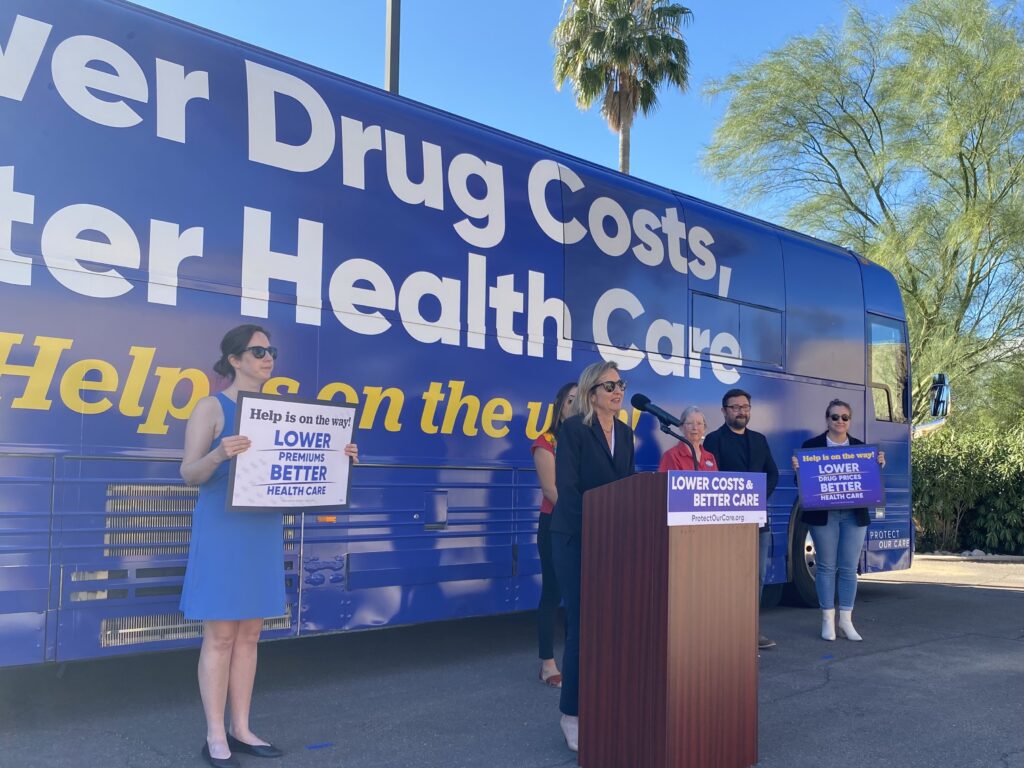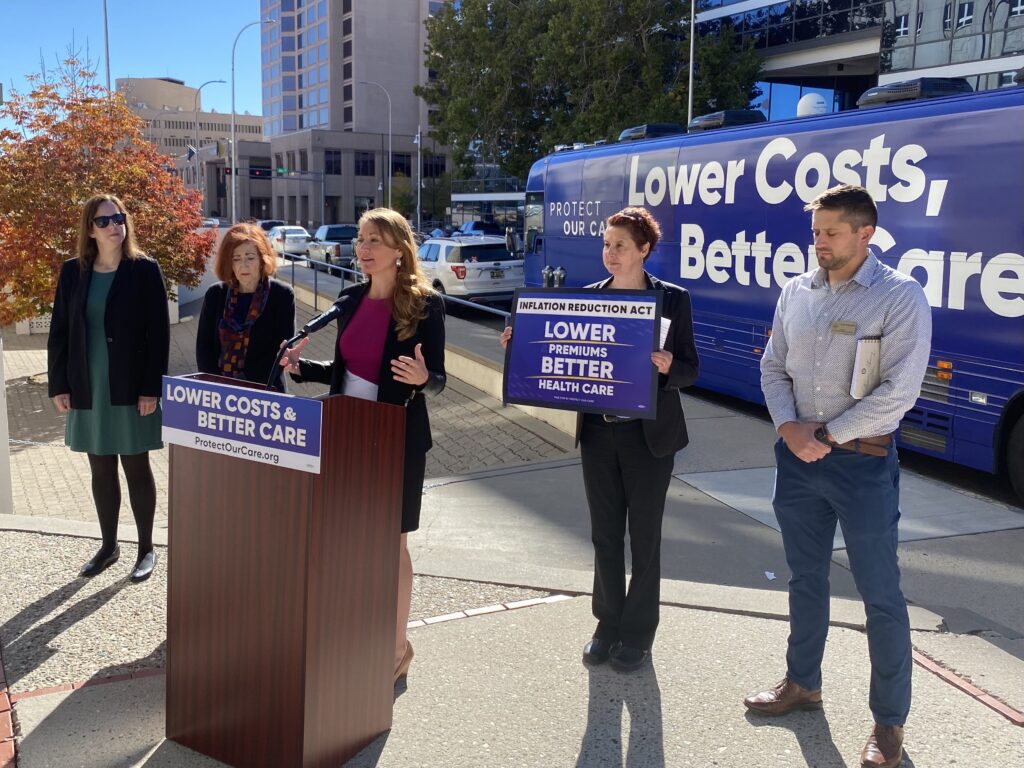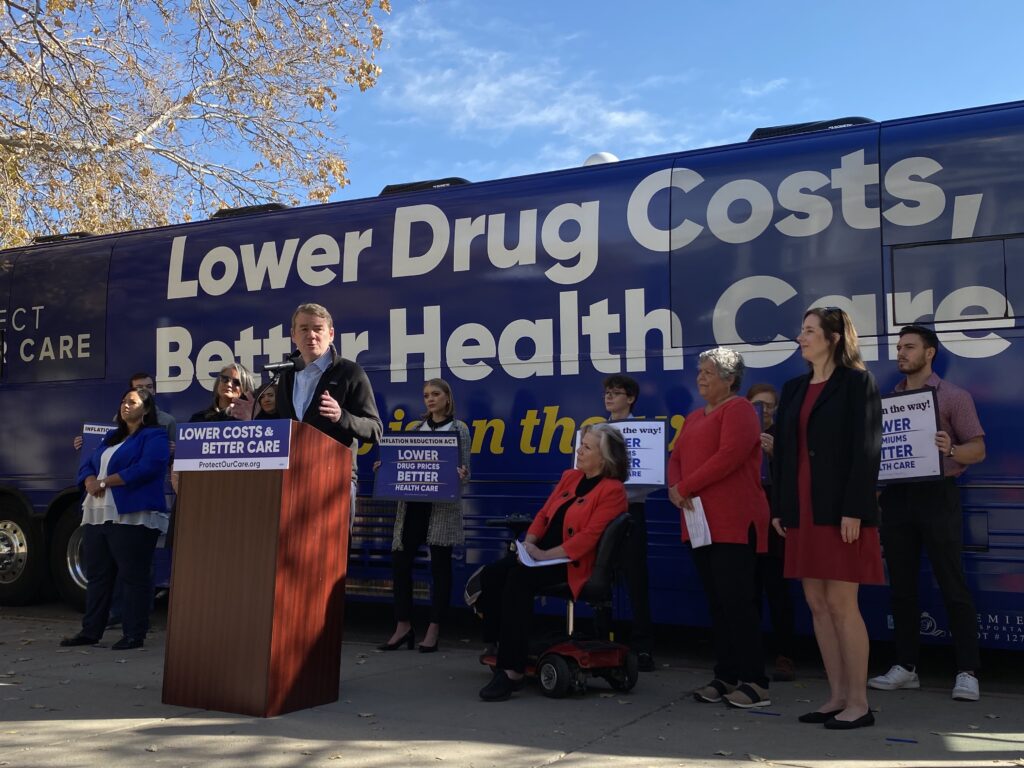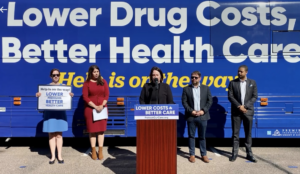U.S. Representatives Sanford Bishop (GA-02), Kathy Castor (FL-14), Alma Adams (NC-12), Val Demings (FL-10), Darren Soto (FL-09), Lucy McBath (GA-06), and Kathy Manning (NC-06) Will Headline “Lower Costs, Better Care” Events Across Three States
Watch All Bus Tour Stops Live Here.
On the four week of Protect Our Care’s 12,000-mile “Lower Costs, Better Care” bus tour, “Care Force One” will make stops in three states to celebrate the Inflation Reduction Act’s measures to drive down health care costs and to let Americans know how and when they can access these new benefits. During each stop, national and local elected officials, health care advocates and storytellers will educate Americans about how the bill could save them thousands of dollars a year on health care.

The “Lower Costs, Better Care” five-week tour will thank lawmakers who fought tirelessly to pass this historic bill and call out Republican lawmakers for rejecting measures to lower costs for millions of working families and seniors and addressing deep inequities in our health care system. Lawmakers have long worked to lower health costs and rein in high drug prices — but President Biden and Democrats in Congress actually got the job done— with help on the way in just a matter of months. Read more about the Inflation Reduction Act’s health care provisions here.
MONDAY
GREENSBORO, NORTH CAROLINA:
WHO:
U.S. Representative Kathy Manning (NC-06)
State Senator Gladys Robinson
Bill Dworkin, Alliance for Retired Americans
Laura Packard, cancer survivor and health care advocate
WHERE: Center City Park: 200 N Elm St, Greensboro, NC 27401
WHEN: Monday, October 24, 2022 at 3:00 PM
TUESDAY
CHARLOTTE, NORTH CAROLINA:
WHO:
U.S. Representative Alma Adams (NC-12)
State Senator Jeff Jackson
Stacy Staggs, Little Lobbyists;
DonnaMarie Woodson, cancer survivor and patient storyteller
Laura Packard, cancer survivor and health care advocate
WHERE: Charlotte-Mecklenburg Government Center: 600 E 4th St, Charlotte, NC 28202
WHEN: Tuesday, October 25, 2022 at 10:00 AM
WEDNESDAY
ATLANTA, GEORGIA:
WHO:
U.S. Representative Lucy McBath (GA-06)
Rep. Carolyn Bourdeaux
Rep. Hank Johnson
Laura Packard, cancer survivor and health care advocate
WHERE: Gwinnett County Arena: 6400 Sugarloaf Pkwy, Duluth, GA 30097
WHEN: Wednesday, October 26, 2022 at 9:00 AM
COLUMBUS, GEORGIA:
WHO:
U.S. Representative Sanford Bishop (GA-02)
Nedra Fortson, RN
Tomsa Thompson
Laura Packard, cancer survivor and health care advocate
WHERE: TBD
WHEN: Wednesday, October 26, 2022 at 1:00 PM
THURSDAY
ORLANDO, FLORIDA:
WHO:
U.S. Representative Darren Soto (FL-09)
Laura Packard, cancer survivor and health care advocate
WHERE: Orlando City Hall: 400 S Orange Ave, Orlando, FL 32801
WHEN: Thursday, October 27, 2022 at 10:00 AM
TAMPA, FLORIDA:
WHO:
U.S. Representative Val Demings (FL-10)
U.S. Representative Kathy Castor (FL-14)
Rory Noonan
Laura Packard, cancer survivor and health care advocate
WHERE: Lykes Park: 241 E Madison St, Tampa, FL 33602
WHEN: Thursday, October 27, 2022 at 4:00 PM
FRIDAY
FT. LAUDERDALE, FLORIDA:
WHO:
County Commissioner Jared Moskowitz
Laura Packard, cancer survivor and health care advocate
WHERE: TBD
WHEN: Friday, October 28, 2022 at 10:00 AM
Protect Our Care’s Care Force One will make stops in:
Bangor, Maine on Monday, October 3, 2022
Portsmouth, New Hampshire on Monday, October 3, 2022
Concord, New Hampshire on Tuesday, October 4, 2022
Hartford, Connecticut on Tuesday, October 4, 2022
Scranton, Pennsylvania on Wednesday, October 5, 2022
Philadelphia, Pennsylvania on Wednesday, October 5, 2022
New Brunswick, New Jersey on Thursday, October 6, 2022
Marlton, New Jersey on Thursday, October 6, 2022
Pittsburgh, Pennsylvania on Friday, October 7, 2022
Morgantown, West Virginia on Friday, October 7, 2022
Columbus, Ohio on Monday, October 10, 2022
Cleveland, Ohio on Monday, October 10, 2022
Flint, Michigan on Tuesday, October 11, 2022
Lansing, Michigan on Tuesday, October 11, 2022
Milwaukee, Wisconsin on Wednesday, October 12, 2022
Green Bay, Wisconsin on Wednesday, October 12, 2022
Eau Claire, Wisconsin on Thursday, October 13, 2022
St. Paul, Minnesota on Thursday, October 13, 2022
Des Moines, Iowa on Friday, October 14, 2022
Kansas City, Kansas on Friday, October 14, 2022
Reno, Nevada on Monday, October 17, 2022
Las Vegas, Nevada on Tuesday, October 18, 2022
Flagstaff, Arizona on Tuesday, October 18, 2022
Phoenix, Arizona on Wednesday, October 19, 2022
Tucson, Arizona on Wednesday, October 19, 2022
Albuquerque, New Mexico on Thursday, October 20, 2022
Boulder/Fort Collins, Colorado on Thursday, October 20, 2022
Denver, Colorado on Friday, October 21, 2022
Raleigh, North Carolina on Monday, October 24, 2022
Charlotte, North Carolina on Tuesday, October 25, 2022
Augusta, Georgia on Tuesday, October 25, 2022
Atlanta, Georgia on Wednesday, October 26, 2022
Savannah, Georgia on Wednesday, October 26, 2022
Orlando, Florida on Thursday, October 27, 2022
Tampa, Florida on Thursday, October 27, 2022
Miami, Florida on Friday, October 28, 2022
TBA: October 31-November 4, 2022
For more information on the Protect Our Care “Lower Costs, Better Care” Bus Tour visit https://www.protectourcare.org/bus-tour/


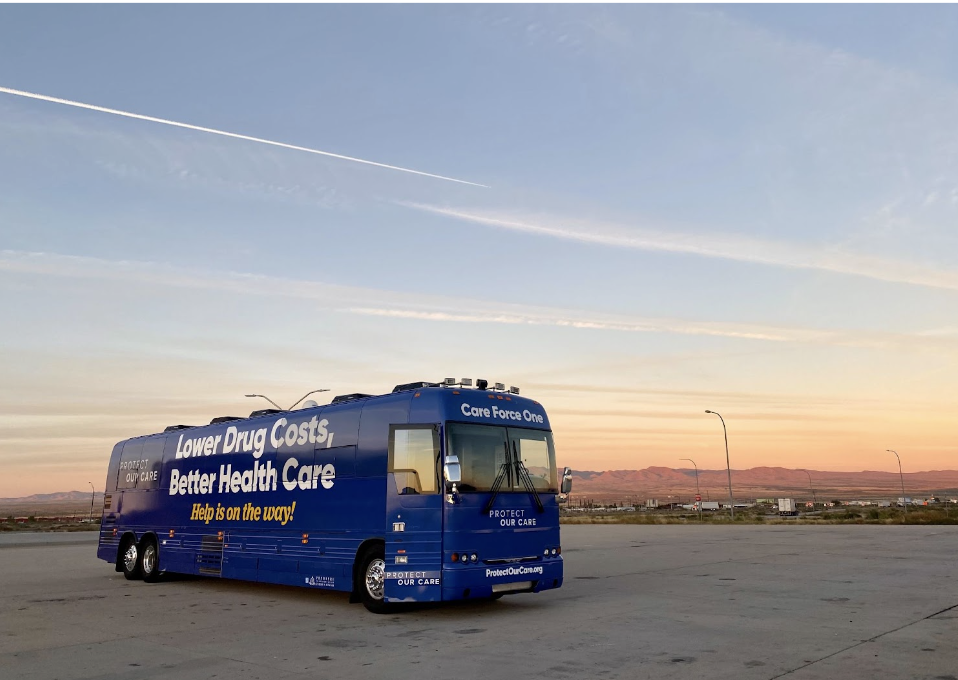
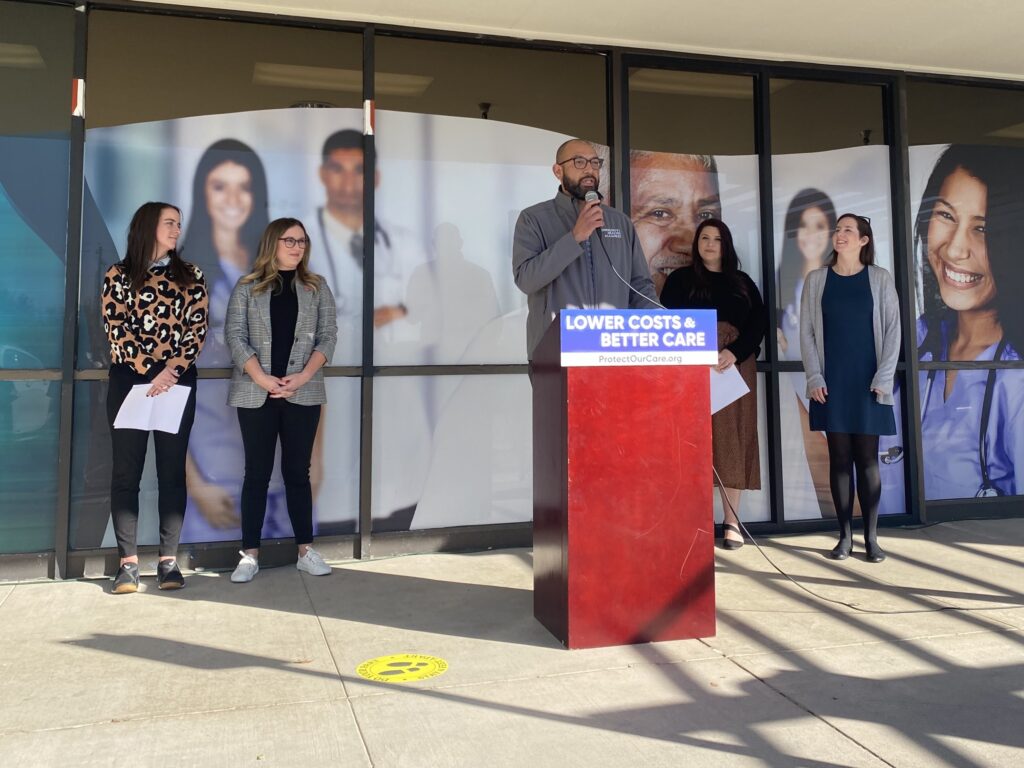 Coverage
Coverage